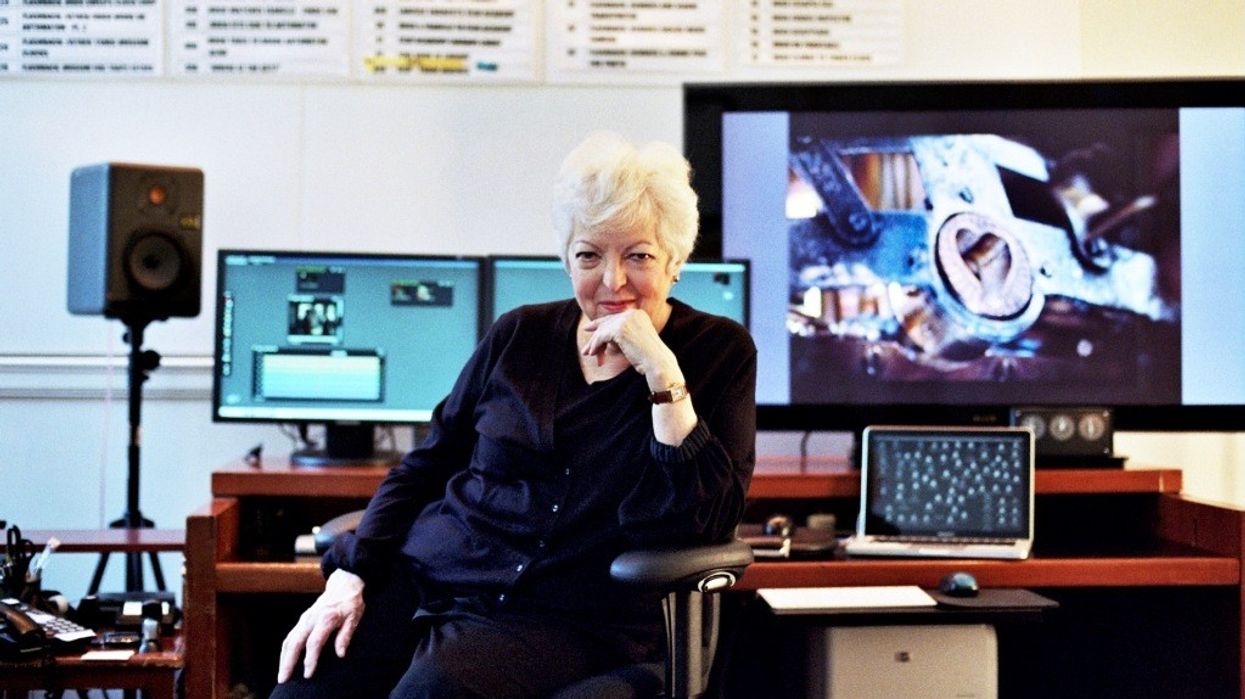Iconic Editor Thelma Schoonmaker Shares What She's Learned from 50 Years of Filmmaking

Legendary editor Thelma Schoonmaker has collaborated with Martin Scorsese for essentially the entire length of both of their careers, starting with Scorsese's feature Who's That Knocking at My Door?. Needless to say, this 3-time Oscar winner, with nearly a half a century of filmmaking experience, has insight into the craft that you'd be hard-pressed to find elsewhere, and fortunately for us, Schoonmaker has shared 8 Golden Rules of filmmaking with MovieMaker Magazine, and we've selected a few to share with you.
Here are a few tips from Schoonmaker's post on MovieMaker Magazine.
Live life & study the classics
Filmmaking is visual storytelling, and one of the greatest tools you'll ever have is experience. Traveling, meeting new people, and experiencing new things will give you a greater chance at understanding the world a little more, as well as setting the stage for your story. However, if you're not a big traveler or prefer a routine that doesn't include meeting new people or trying new things, simply paying attention to the world around you will pay dividends to your storytelling ability and your creativity in the end. Studying classic cinema has a similar effect -- it introduces you to cinematic practices, styles, and techniques right at the ground floor where they were being invented by filmmakers like you. Schoonmaker says:
To live life before you become a filmmaker -- really live it -- is the most essential experience you should have before becoming a filmmaker. Experience all kinds of people and behaviors. In terms of special training to become a filmmaker, one should study classic films and learn from them. That is how Scorsese became the filmmaker he is.
Again -- when you make a film, have something to say
I've heard this piece of advice time and time again, from director Paul Greengrass, cinematographer Lol Crawley, and so many others. So, if Schoonmaker is reiterating it, it must mean something. From my own personal experience, the projects that I did solely for a client and a paycheck never had the bite that the projects I did for my own artistic satisfaction did. I can't imagine Schoonmaker's perspective -- especially considering that she's speaking from almost 50 years of experience -- but I can imagine that a career spent telling stories you're passionate about, that you can't keep inside you, is much more satisfying than anything else. She says:
Don’t make a movie unless you have something burning inside of you to say -- like Scorsese’s Mean Streets, which is so personal and powerful and ground breaking.
Know this: Your audience gets it
Perhaps you yourself are a moviegoer that feels a little pandered to. If you are, I sympathize with you. Assuming that your audience just "won't get it" unless each motif, symbol, or plot point is spelled out for them is just silliness. Every one of us, artists and non-artists alike, are raised on stories -- it's one of the primary ways we relate ourselves to the world around us. So, excessive exposition, over-cranked dialog, and narrative and visual clichés may be met with a quiet groan and eye-roll from your audience. The way I see it, either be prepared for that, or learn how to give your viewers a surprisingly fresh piece of filmmaking.
I learned from Michael Powell to never talk down to our audiences -- to never “dumb down” a movie. He said that audiences are actually way ahead of us and as filmmakers, we must try to be ahead of them -- to surprise them and make them feel our movies, not tell them what to think.
---
Of course, each one of our individual filmmaking journeys are going to be unique. Schoonmaker's tips may not apply to you, or you might have just had an experience that was altogether different. However, check out the rest of Thelma Schoonmaker's invaluable advice on MovieMaker Magazine's original post, and find out what tips could apply to your projects and your career overall. With such a sterling career, she certainly is an authority on what may help your films and what may not.
Did any of Thelma Schoonmaker's tips stick out to you? Let us know in the comments below!
Link: Wisdom Wednesday: Things I’ve Learned by Thelma Schoonmaker -- MovieMaker Magazine












